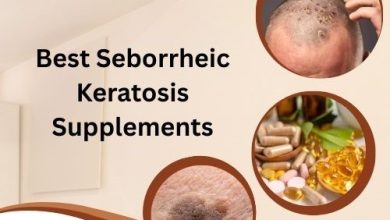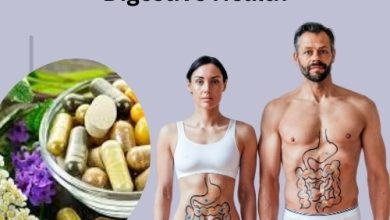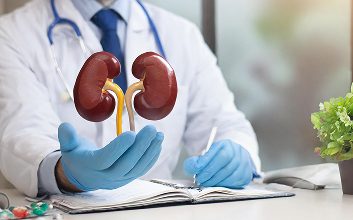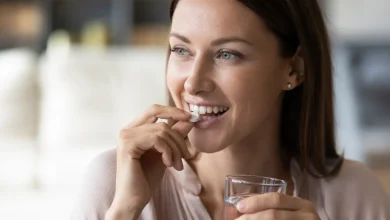New Hope for Polycythemia Vera Sufferers: The Supplements Making Headlines
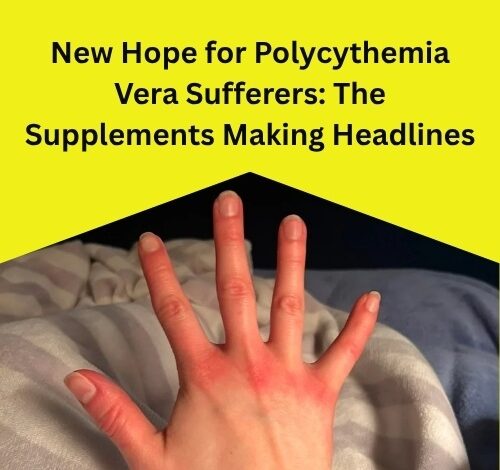
Polycythemia Vera (PV) is a rare but serious blood disorder that affects thousands of people worldwide. As a chronic condition, it often requires lifelong management. For years, conventional treatment options like phlebotomy and medications such as hydroxyurea have been the go-to choices for managing PV. However, the growing interest in integrative medicine has given rise to a new avenue of hope: supplements for Polycythemia Vera.
These natural options are increasingly making headlines—not as cures, but as complementary therapies that can support traditional treatments, enhance quality of life, and even mitigate some of the symptoms associated with the disease. Natural remedies for Polycythemia Vera, understand how they work, and highlight the most promising supplements gaining attention in the medical community.
Understanding Polycythemia Vera
Polycythemia Vera is a type of blood cancer that causes the bone marrow to produce too many red blood cells. This excess thickens the blood, slowing its flow and increasing the risk of blood clots, strokes, and heart attacks. Common symptoms include:
- Headaches
- Dizziness
- Fatigue
- Itching (especially after a hot shower)
- Reddened skin
- Vision problems
- Night sweats
Most PV cases are linked to a genetic mutation in the JAK2 gene, which triggers excessive blood cell production. While current treatments can manage the condition, they often come with side effects, making alternative therapies, including supplements for Polycythemia Vera, a compelling area of interest.
Related Article: Exploring Polycythemia Vera Alternative Treatments: Natural Approaches to Managing Symptoms
The Role of Supplements in PV Management
Supplements are not a substitute for medical treatment, but they may provide meaningful support in managing the symptoms and underlying issues of PV. When used responsibly and under the supervision of a healthcare provider, these natural remedies for Polycythemia Vera can:
- Support cardiovascular health
- Reduce inflammation
- Promote blood thinning
- Enhance immune function
- Improve energy and vitality
Let’s dive into some of the most promising supplements for Polycythemia Vera that are making headlines today.
10 supplements for Polycythemia Vera
Polycythemia Vera (PV) is a rare blood disorder in which the body produces too many red blood cells, thickening the blood and increasing the risk of clots, strokes, or heart attacks. While there’s no cure, managing symptoms and reducing complications is crucial. Alongside medical treatment, many patients explore natural supplements to support overall health and reduce inflammation.
Here are 10 supplements for Polycythemia Vera that may help:
1. Omega-3 Fatty Acids
Why It Matters:
Omega-3 fatty acids, particularly EPA and DHA found in fish oil, are known for their anti-inflammatory and blood-thinning properties. Since PV patients are at an elevated risk for blood clots, Omega-3s may help reduce that risk naturally.
Research Spotlight:
Several studies show that Omega-3s help lower triglyceride levels, reduce platelet aggregation, and support overall heart health—key concerns for PV sufferers.
Related Article: Polycythemia Vera Treatment Diet Revealed: Unlock The Power Of Food
Recommended Use:
A typical dose is 1,000 to 3,000 mg per day. However, always consult with a physician to ensure it doesn’t interfere with blood-thinning medications.
2. Curcumin (Turmeric Extract)
Why It Matters:
Curcumin, the active compound in turmeric, boasts powerful anti-inflammatory and antioxidant effects. It may help modulate immune function and reduce oxidative stress in PV patients.
Research Spotlight:
Recent findings suggest that curcumin can inhibit abnormal blood cell proliferation and support healthy cell signaling, offering a potential adjunctive benefit for PV.
Recommended Use:
500–1,000 mg of curcumin with black pepper extract (piperine) daily enhances absorption and effectiveness.
3. Nattokinase
Why It Matters:
Derived from fermented soybeans, nattokinase is an enzyme known for its ability to dissolve blood clots and promote healthy blood circulation.
Research Spotlight:
Although limited in direct PV studies, nattokinase has shown promise in reducing clot formation and supporting vascular health—both essential in PV management.
Related Article: Polycythemia Vera Management Often Does Not Follow Guidelines
Recommended Use:
100–200 mg daily, often standardized to fibrinolytic activity. Always consult a physician, especially if taking anticoagulants.
4. Ginkgo Biloba
Why It Matters:
Ginkgo Biloba enhances circulation and supports cognitive function, which is particularly beneficial for PV patients who suffer from dizziness and brain fog.
Research Spotlight:
It acts as a mild vasodilator and has antioxidant properties, helping to counteract the sluggish blood flow associated with thickened blood.
Recommended Use:
120–240 mg daily, split into two doses.
5. Quercetin
Why It Matters:
This natural flavonoid acts as a potent antioxidant and anti-inflammatory agent. It may help regulate abnormal cell growth and reduce systemic inflammation in PV.
Related Article: Painful Burning or Numbness of the Hands and Feet: How to Relief
Research Spotlight:
Quercetin has shown anti-cancer potential in lab settings, inhibiting pathways involved in abnormal cell proliferation—a hallmark of Polycythemia Vera.
Recommended Use:
500–1,000 mg per day, often combined with bromelain for better absorption.
6. Magnesium
Why It Matters:
Magnesium is crucial for cardiovascular function and energy production. It may alleviate symptoms like muscle cramps, fatigue, and irregular heartbeat.
Research Spotlight:
Many PV patients have magnesium deficiencies, and replenishing this mineral can help stabilize blood pressure and improve overall well-being.
Related Article: Navigating the Use of Hydroxyurea for Polycythemia Vera Recovery
Recommended Use:
300–400 mg of magnesium citrate or glycinate daily.
7. Vitamin D3
Why It Matters:
Vitamin D plays a pivotal role in immune regulation and bone health. A deficiency can worsen fatigue and immune dysfunction.
Research Spotlight:
PV patients often report low Vitamin D levels. Supplementation may improve energy levels and modulate immune responses.
Recommended Use:
1,000–5,000 IU daily, depending on blood test results.
8. Coenzyme Q10 (CoQ10)
Why It Matters:
CoQ10 is vital for mitochondrial energy production and has antioxidant properties. It can be beneficial in combating the fatigue often experienced by PV sufferers.
Related Article: Polycythemia Vera Diet and Lifestyle Tips: Managing Your Health
Research Spotlight:
Studies suggest CoQ10 improves exercise tolerance and heart function, which may enhance the overall quality of life in PV patients.
Recommended Use:
100–200 mg daily, preferably in ubiquinol form for better absorption.
9. Resveratrol
Why It Matters:
Resveratrol is a polyphenol found in red wine and grapes, known for its anti-aging and cardiovascular benefits. It also helps thin the blood and may reduce inflammation.
Research Spotlight:
Animal studies suggest resveratrol can inhibit abnormal blood cell growth and protect against thrombosis.
Recommended Use:
250–500 mg daily.
10. Green Tea Extract
Why It Matters:
Green tea is rich in antioxidants and catechins that may have anti-cancer and anti-inflammatory properties.
Research Spotlight:
Some studies indicate that green tea extract can inhibit JAK2 activity, the same gene mutation commonly implicated in PV.
Recommended Use:
250–500 mg standardized green tea extract, containing 50% EGCG, daily.
The Importance of Professional Guidance
Before starting any supplements for Polycythemia Vera, it’s essential to consult with your healthcare provider. Some Best Supplements for Healthy Skin may interact with prescription medications or affect blood clotting. A hematologist or integrative medicine practitioner can help tailor a supplement regimen that complements conventional treatment safely.
Related Article: Understanding Polycythemia Vera End Stage Symptoms
Diet and Lifestyle as Natural Remedies for Polycythemia Vera
In addition to supplements, adopting specific lifestyle changes can enhance the benefits of natural therapies:
- Hydration
Staying hydrated helps reduce blood thickness, a major concern in PV.
- Regular Exercise
Engaging in light aerobic activity can improve circulation and reduce clot risk.
- Anti-inflammatory Diet
A diet rich in fruits, vegetables, whole grains, lean proteins, and healthy fats (like olive oil and nuts) can reduce inflammation and support cardiovascular health.
- Avoiding Triggers
Limiting alcohol, processed foods, and excessive iron intake may benefit PV sufferers.
These lifestyle modifications, in combination with natural remedies for Polycythemia Vera, can lead to meaningful improvements in how patients feel and function daily.
Patient Testimonials: Real-Life Results
Many PV patients are turning to supplements and natural therapies with remarkable results. While clinical trials are still ongoing, anecdotal evidence shows that these approaches can lead to:
- Improved energy and vitality
- Fewer headaches and dizziness
- Enhanced mental clarity
- Reduced need for phlebotomies in some cases
One patient shared, “Adding Omega-3s and curcumin to my routine, alongside my regular meds, has drastically improved my energy levels and reduced my itching. It feels like I’ve finally regained control over my life.”
Final Thoughts: A New Era of Hope
While Polycythemia Vera remains a challenging condition, the growing body of evidence around supplements for Polycythemia Vera offers renewed optimism for patients. These natural remedies, when used wisely and in conjunction with conventional treatments, can make a meaningful difference in symptom management and overall well-being.
From Omega-3s and curcumin to CoQ10 and green tea extract, these supplements are not just making headlines—they are transforming lives.
If you or a loved one is battling PV, consider exploring these natural remedies for Polycythemia Vera under the guidance of a healthcare professional. The future of integrative care looks brighter than ever, and hope is very much alive.

